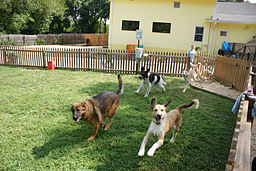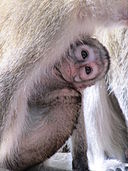Who Let the Dogs Out? Issues in Animal Research on Campus
For many undergraduate students majoring in the hard sciences and for the professors who teach these subjects, animal research is a standard part of the curriculum.
However, it’s unlikely that these students and educators cover topics such as how to protect yourself from car bombings and how to handle hate mail.
Last year, J. David Jentsch, neuroscience professor at the University of California, Los Angeles, awoke one morning to the sound of a large explosion outside his West LA home. His 2006 Volvo was blown up by activists calling for his death. And most recently, he received a package of used razors, and an accompanying letter stating these razors were tainted with the AIDs virus (FBI officials have yet to confirm the latter).
Jentsch also happens to be an animal researcher. He’s taken flak recently from animal activist groups for his research with vervet monkeys on drug addiction and teenage smoking. Part of his drug studies involve the insertion and then withdrawal of methamphetamine, resulting in the deaths of a half dozen or so monkeys annually.
Despite the recent attacks and claims of abuse from animal activists, Jentsch has not been found guilty of any criminal wrongdoing.
The issue of ethics in the world of animal research on college campuses is a touchy subject among university professors and animal rights activists. And in a recent article in the The Chronicle for Higher Education, author Lawrence A. Hansen, who also happens to be an animal researcher at the University of California at San Diego, believes that both camps are guilty of groupthink.
According to Hansen, the passage of the Laboratory Animal Welfare Act in 1966, which mandated the creation of “Institutional Animal Care and Use Committees to oversee all use of primates, dogs, and cats in research and teaching,” was supposed put a stop to abusive animal research procedures. However, because many of the independent committees are also comprised of researchers, there is no true system of checks and balances. As a result, this fosters a culture allowing some researchers who lack moral compasses to extend the boundaries of their research grants and conduct experiments that have no historical correlation to their study of work, that result in cruel treatment of animals.
From the animal activist camp, Hansen notes how groupthink is “self-defeating” when activists only rally around issues such as the euthanization of mice, who are used as test subjects in 97.5% of all research studies, instead of larger issues at hand including the vivisection of primates and dogs, who are considered companion animals within both camps. However, such attitudes complicate matters further. Hansen goes on to mention, “They [animal activists] fear that rescuing only monkeys, dogs, and cats from the vivisection will dissipate any growing public pressure to abolish vivisection altogether, leaving the vast majority of experimental animals beyond the pale of public compassion. They consequently refuse to designate any particular species as special, but in so doing they risk allowing the perfect to become the enemy of the good.” And of course, resorting to extreme acts of violence as highlighted in Jentsch’s case underscores the abysmal results of groupthink.
Beyond Hansen’s observations, it’s also important to consider how the groupthink issue impacts students. Evie Hobbs, an Occidental College graduate who spent the last two years as a lung cancer research fellow at the National Institute of Health (NIH) in Washington D.C. shared that she’s not afraid to blow the whistle on likely perpetrators engaging in acts of animal cruelty. In her six years of experience conducting animal research, she once observed two high school students left unsupervised in the animal facility, who were twirling around the mice by their tails upside down and giggling. “I immediately told them to stop, asked their names and who their research mentor was,” she explains. ”I contacted him and let him know what had happened and although he was as appalled as I was, he apologized for not properly training [and educating] the students that research animals are not pets and are not to be played with.”
So while it’s clear that groupthink impacts both university researchers and animal activists, it’s refreshing to see that students have the capacity to rise above the influence.


